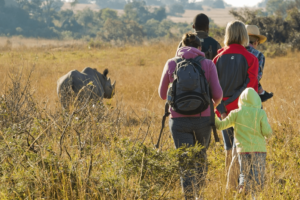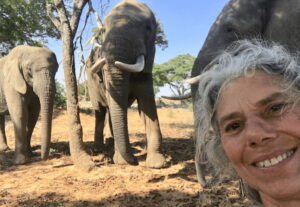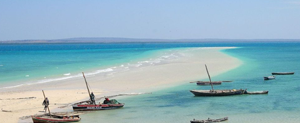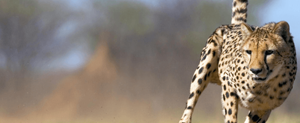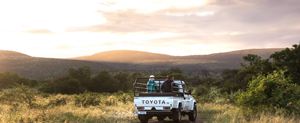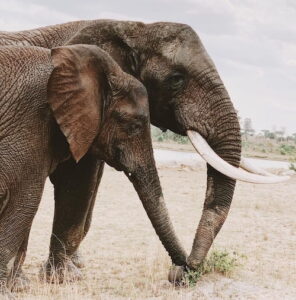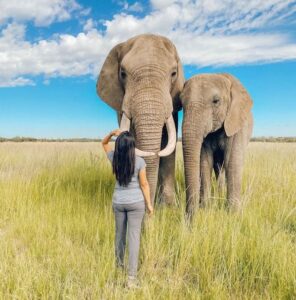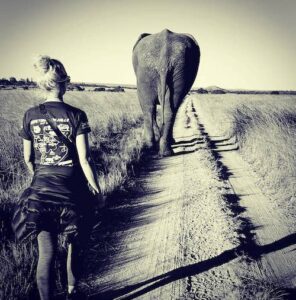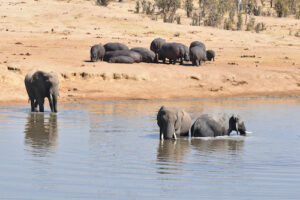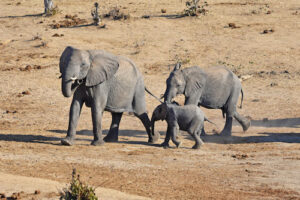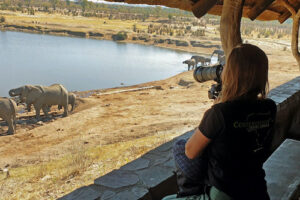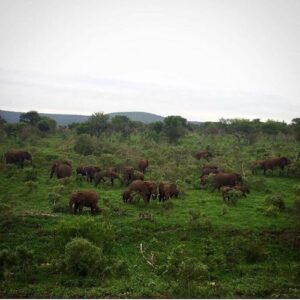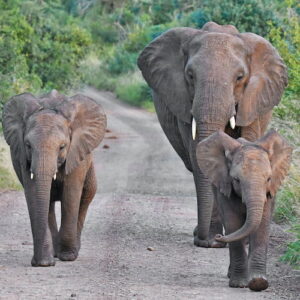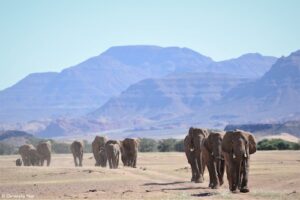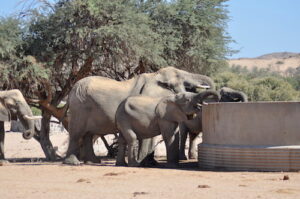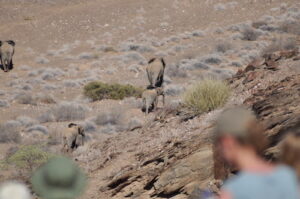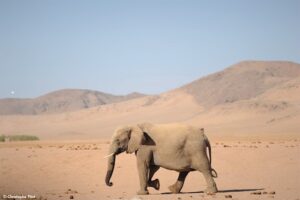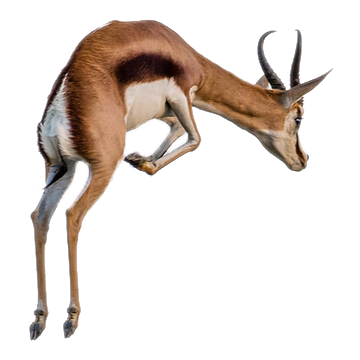Our best places to volunteer with elephants in Africa!
(where you can be sure you’re doing it responsibly)
Elephants are perhaps the most iconic symbol of Africa and her amazing wilderness. Alongside being the worlds largest land mammal, these incredible and unique creatures can express grief, compassion, self-awareness, empathy and play, making them endlessly fascinating to watch in their natural habitat.
Elephant numbers are rapidly declining, due to poaching for their ivory, habitat destruction and conflict with humans. Seeing elephants in the wild is a life-changing experience – the highlight of any trip to Africa, and an opportunity that we are in danger of losing.
“The question is, are we happy to suppose that our grandchildren may never be able to see an elephant except in a picture book?”
Our top 4 places to volunteer (ethically) with elephants in Africa:
1. Zimbabwe – Endangered Species Conservation
Imire is an elephant-lovers paradise. Meet Mac and Mandebvu, two orphaned elephants who have lived at Imire for more than 70 years combined! Mac is an enormous male African elephant, big even by elephant standards, and he lives happily with Mandebvu, a gentle 35 year old female. The two elephants were orphaned as calves and moved to Imire when very young, as they could not be released back into the wild. Volunteers accompany the project’s scouts as they watch over the two elephants. You will observe their behaviour and feeding patterns and learn from the experienced rangers about the challenges to Africa’s dwindling wild elephant population.
The project is also home to Nzou (which means ‘elephant’ in the local Shona language!), the world-famous ‘buffalant’ (watch her incredible story). She is more than 50 years old and has lived at Imire for most of those years, arriving when she was also an orphaned calf. When she came to Imire, there were no other elephants at the time, so, as elephants are social animals, she was placed with the only other large herd animal – the buffalo. She soon became matriarch to this strange new herd and has remained with the buffalo for more than 45 years. Despite numerous attempts over the past decades to encourage her to join with the other elephants, both her and the buffalo became so distressed at their separation, she was returned to live out her days within the security of her buffalo family. Proving that sometimes you CAN choose your family!
Find out more about the project here!

Family-friendly volunteer programme!
Visit the family project page for more details.
2. Zimbabwe – National Parks Conservation
Join as a field assistant and have a unique opportunity to live and work in Hwange National Park, Zimbabwe’s largest National Park, home to one of the largest concentrations of elephants in Southern Africa. More than 40,000 elephants are thought to roam the park, using ancient migration routes to cross between Zimbabwe and Botswana.
Elephants can be incredibly destructive during the dry winter months, decimating huge areas in their constant search for food and water. Volunteers monitor animal movements, record the location of specific animals and herds, and look at the structure of known groups of elephants. Your role in Hwange will also include maintenance of the more than 50 waterpoints through the park, making sure that elephant damage is repaired quickly and that pumps continue to provide vital water during the dry season.
Visit the project page for more details!
3. South Africa – Endangered Species Monitoring
“This is Zululand, not Disneyland”
This project is an unforgettable experience, as you become an endangered species field researcher, collecting data on some of Africa’s most endangered and iconic species. If you want to see elephants in the true wilderness, this project is an absolute must. Your daily activities as a field researcher will include the tracking and monitoring of endangered wildlife, including elephants (as well as African wildlife dog, cheetah and rhino!) and you will use telemetry and traditional spoor tracking techniques to locate that days focus species. Record data on GPS location, group composition and behaviour and take up to date photos of individuals and herds. As well as collecting data, you will also assist in analysing the data, which is used at a management level to best protect the animals.
Zululand has been called ’the birthplace of conservation’ and is one of South Africa’s most game-rich areas. You will work in one of five conservancies in KwaZulu Natal, most of it a World Heritage Site, home to majestic landscapes and diverse cultures. You will have an unforgettable wildlife experience.
Visit the project page for more details!
4. Namibia – Tracking Desert Elephants and Community Conservation
Head into the vast Namibian desert region to track the resident desert-adapted elephant herds. This is a practical and physical elephant conservation project, focused on conserving the local elephant populations through anti-conflict measures such as education programmes, rural infrastructure support and water measures. The volunteer programme is the only organisation providing data to the Namibian government on the population, health and movements of elephants in the area.
Additionally you will camp in a rural village and assist rural communities on water measures, protecting their homes, water supply and farmland from elephants, allowing them to co-exist peacefully together. Build week will be hard work, but all worth it when the project is complete and you can see the results of your labours! You might be constructing protection walls around water points, building walls around homesteads or completing building projects in local schools and community centres. This is a real hands-on programme, perfect for adventure-lovers!
Find out more about the project here!

Family-friendly volunteer programme!
Visit the family project page for more details.
– – – – – – – – – – – – – – – – – – – – –
If you want to volunteer with elephants and be sure that you’re contributing to a responsible ethical project, we hope this has given you some inspiration.
We can’t wait to welcome you onto one of our projects!
Get in touch with us via the contact page, by email or give us a call!
– – – – – – – – – – – – – – – – – – – – –

